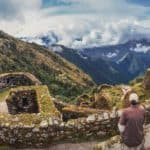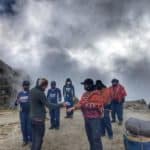Since Apus Peru was founded, we have always aimed to be a leader in sustainable tourism. We were painfully aware of the terrible exploitation common all over Cusco and were determined to do things differently. That’s why from Day 1 we committed to give back to the local communities by hiring locals and supporting community development projects.
>> Read more about what we’re doing to be a sustainable travel company in Peru.
But sustainable tourism goes beyond just tour operators: there is a role for us travelers, too. Below we go over 10 things YOU can do to be a more responsible traveler, no matter where you travel to.
It takes a village.
How to be a Responsible Traveler: Tip 1 – Leave No Trace
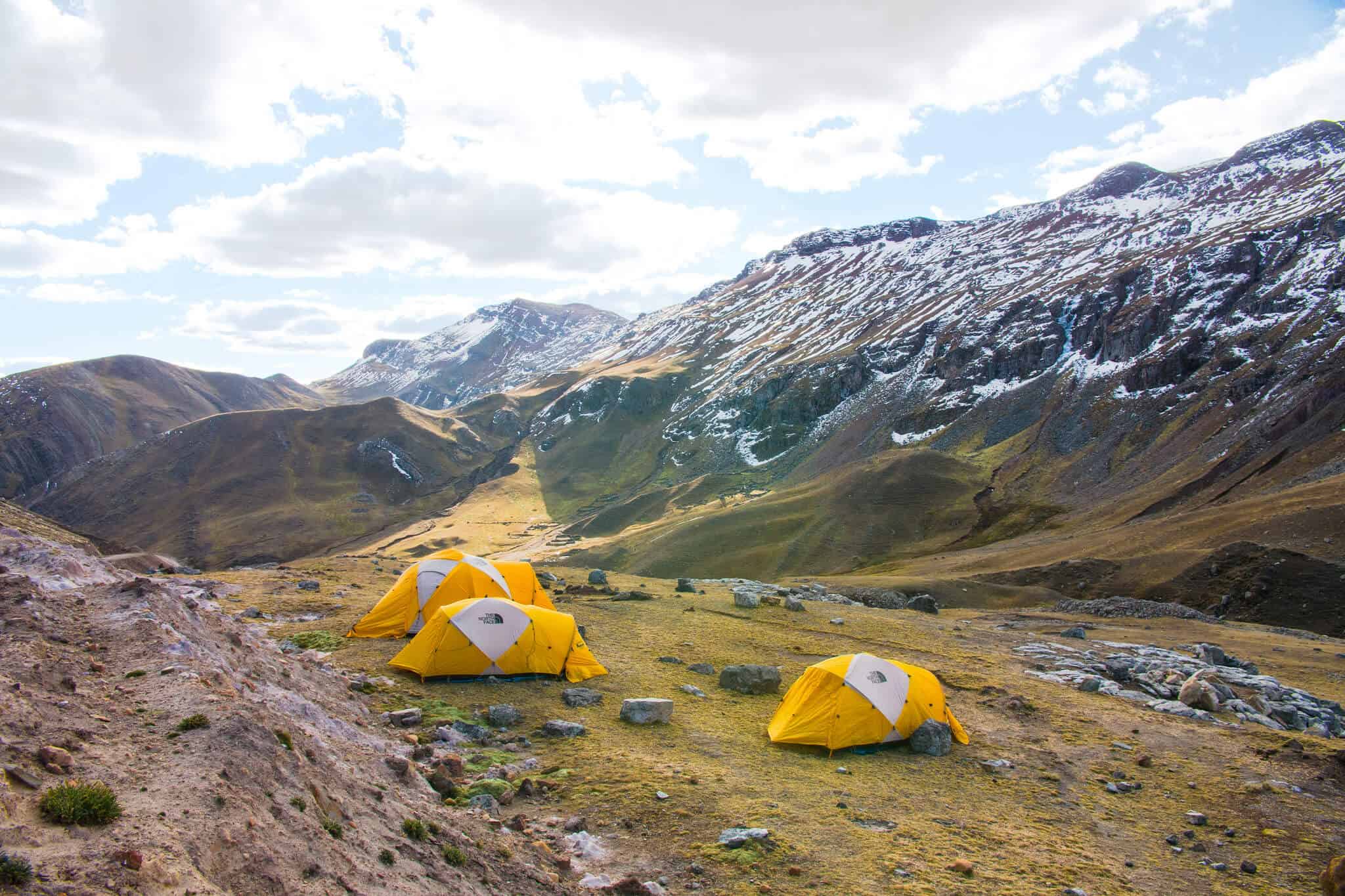
One of the biggest things you can do to be promote sustainability on your travels, especially if you plan to do any trekking, is to follow the International “Leave No Trace” Principles:
- Plan ahead and prepare
- Travel and camp on durable surfaces
- Dispose of waste properly
- Leave what you find
- Respect wildlife – this includes limiting noise and minimizing light after dark.
- Be considerate of your host and other visitors.
How to be a Responsible Traveler: Tip 2 – Follow Local Environmental Laws
Many of our treks in Peru occur in and around protected areas, and it is important that we all comply with environmental protection laws. The same goes just about anywhere you might go for a trekking holiday. A good sustainable travel company will make you aware of any restrictions or special circumstances that you should especially be aware of, and your guide should point out endangered or protected species that you encounter during your hike.
In addition, here are a few tips to take with you on the trail in order to promote environmental sustainability:
- Stay on the trail. Don’t trample delicate vegetation or remove any form of plant or animal life.
- Do not pick flowers or collect local seeds.
- Don’t approach, surround or chase animals you may observe in order to get a photograph.
- Don’t attempt to feed animals, and be careful not to leave food around the campsite.
- Relieve yourself in designated areas, or at least 70 meters from any water source. This helps to reduce the contamination of rivers, lakes and streams.
How to be a Responsible Traveler: Tip 3 – Properly Dispose of Solid Waste
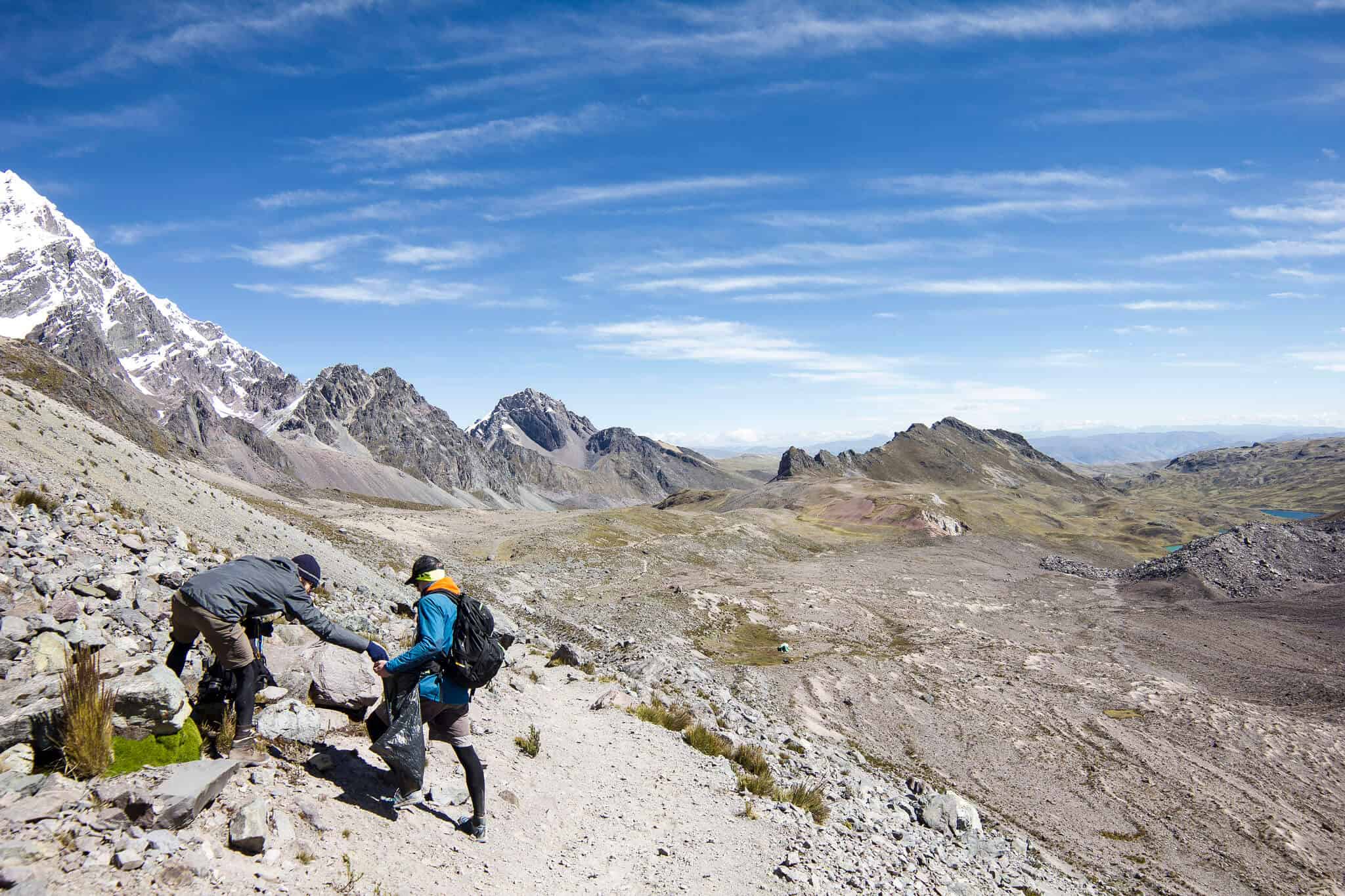
Solid waste on the trail is one of the biggest environmental challenges we face: in most remote, mountainous areas, there is no garbage pickup! Apus Peru organizes monthly Clean-Up Treks where our hikers give back as they hike by collecting trash left behind by other trekkers. But in between these treks – and when you go trekking elsewhere in the world – here are some things you can do any time to help keep our trails clean and safe:
- If you see litter on the trail, collect it.
- Carry out all trash. This includes used toilet paper. We recommend bringing a resealable bag to carry it in! Before you leave the campsite in the morning, pick up any small pieces of plastic or other trash you see.
- Separate organic and inorganic waste. Many sustainable travel companies, Apus Peru included, will compost organic waste wherever possible.
How to be a Responsible Traveler: Tip 4 – Kick the Plastic Habit!
Plastic is a huge problem all over the world. Did you know? In addition to the water that goes inside, a 1L plastic bottle takes 2L of water and 200mL of oil to produce! Nearly 200 million bottles are produced every month in Peru alone. Empty plastic bottles end up in landfills or, worse, contaminating waterways and natural environments.
Do your part to help address this problem and
- Carry a reusable water bottle (glass, metal, or BPA-free plastic) and fill it with boiled or treated water.
- Purchase water or soda in reusable glass bottles.
- Ask your hotel to provide water tanks (bidones) or boiled drinking water for refills.
- If you can’t avoid carrying a non-refillable plastic water bottle on the trail, please leave them with us! We will carry them back to Cusco to make sure they are properly recycled. We participate in a recycling program that helps provide employment to men recovering from addictions, helping people and the environment at the same time!
- Reduce the number of plastic bags that get used by using the cloth snack bags we provide, using your own reusable bags for groceries, or reusing plastic bags over and over instead of accepting new ones. You can also buy one of the brightly colored “market bags” which doubles as a great souvenir!
How to be a Responsible Traveler: Tip 5 – Book Early!
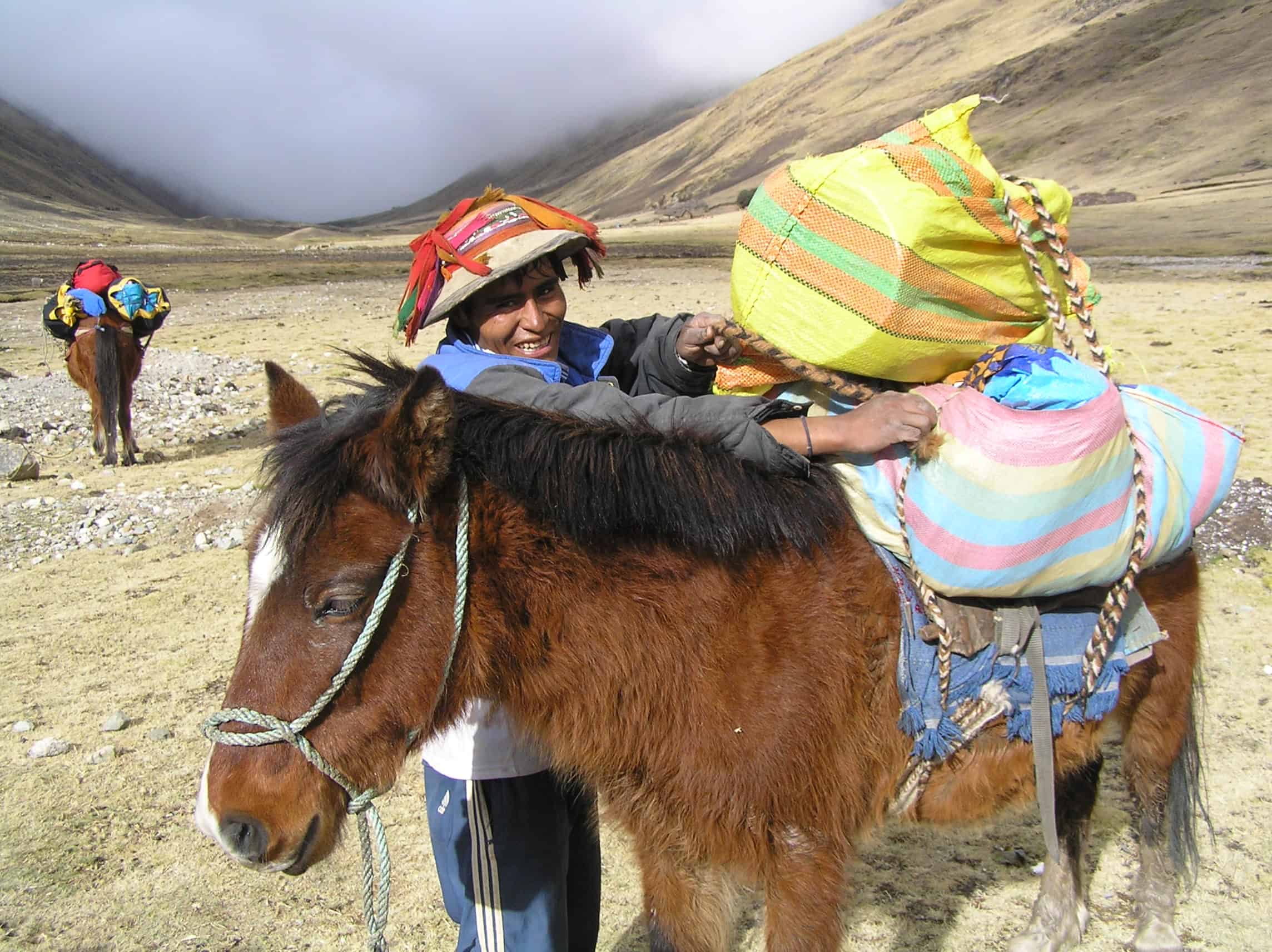
As part of our commitment to responsible tourism, we try to schedule guides, chefs, porters and muleteers at the beginning of each month. Why does this matter? Scheduling in advance builds a more balanced program for our staff, and allows them to plan – very beneficial for those with families!
Knowing at the start of the month that you can count on a certain number of days of work, and when, relieves a lot of stress and increases job satisfaction, which also trickles down into creating a positive home environment for the whole family.
>> Coming to Peru? Check out Apus Peru Treks & Excursions!
How to be a Responsible Traveler: Tip 6 – Be sensitive to Local Customs.
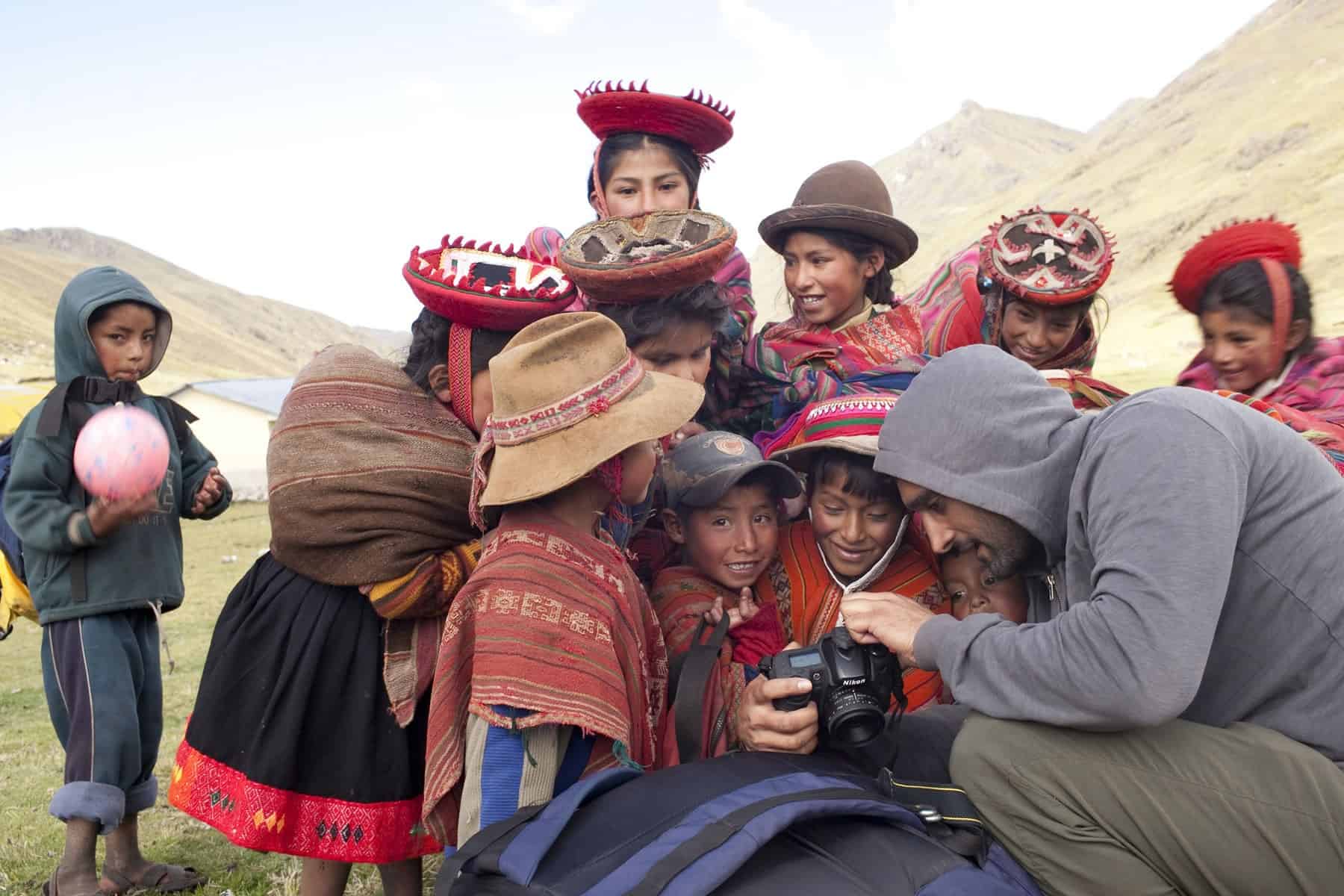
Conduct that may be acceptable at home may not be in the Andes! Please be aware that things like recreational drug use, nude sun bathing, and boisterous public behaviour is not appropriate here.
Be aware of your own cultural values, and how they affect your judgement of others. In the Andes, different concepts of time, personal space and communication norms exist. These are not wrong or inferior, just different.
If you encounter some of these cultural differences and notice yourself getting frustrated, try to take a step back and remember that you are the one visiting this new landscape. Stepping out of your comfort zone can often lead to the most wonderful and unforgettable moments on your trip.
How to be a Responsible Traveler: Tip 7 – Be Respectful and Responsible.
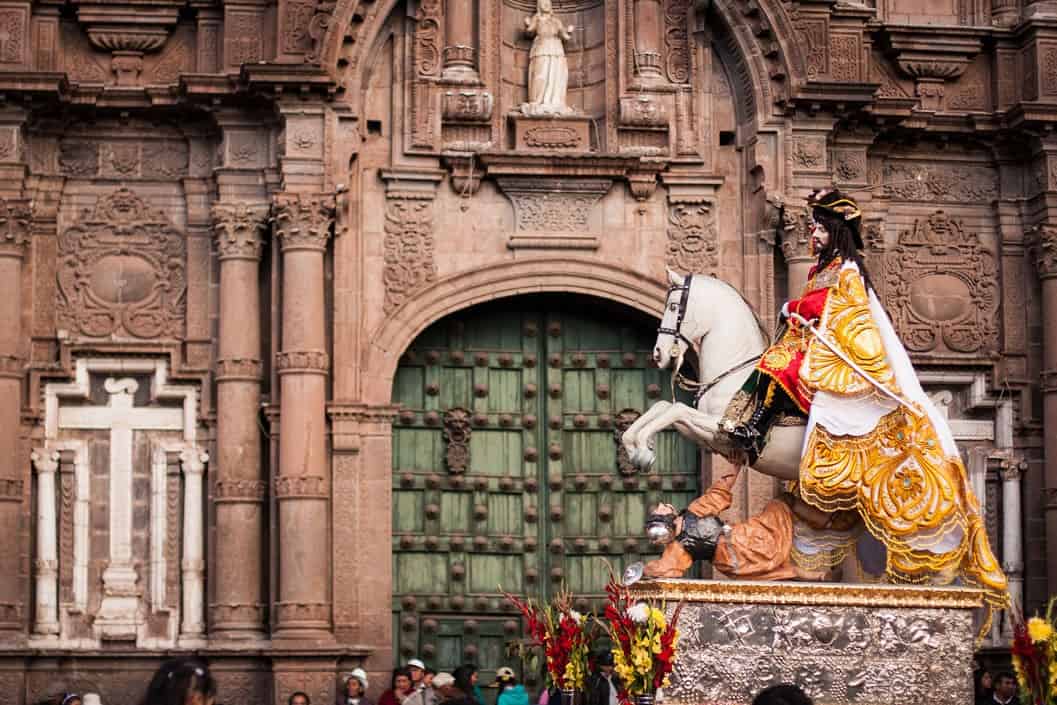
As a tourist, everything is new as you’re experiencing it for the first time. It’s easy to get caught up in the wonder and exoticism of an unfamiliar place. You appreciate the beauty of monuments, marvel at the technical wonder of historical architecture, but oftentimes, we stop short of appreciating the cultural significance behind the artifact.
However, a responsible tourist will remember that some of these sites or buildings are actually still visited by locals for religious or other cultural purposes, and what looks exotic to us is just part of everyday life. Always treat the people and places you visit with respect!
- Churches are first and foremost places of worship for local residents. Please be quiet and respectful when you visit them.
- Archaeological artifacts and endangered species. It is illegal to remove archaeological objects or artifacts made from exotic or endangered species. Do not purchase or take any such items!
- Photography. Do you like your photo being taken without your permission? Always ask first before taking someone’s photo!
- Do not support businesses that utilize forced or child labor.
- SAY NO to sex tourism and human trafficking of any kind, especially that involving children and teens.
How to be a Responsible Traveler: Tip 8 – Be Flexible
One of the best things about traveling to new places are the unexpected and often serendipitous things that can be happen. Travel with an open mind and you will not be disappointed! When plans change, go with the flow – you never know what amazing new experience it might lead to!
How to be a Responsible Traveler: Tip 9 – Gift-Giving
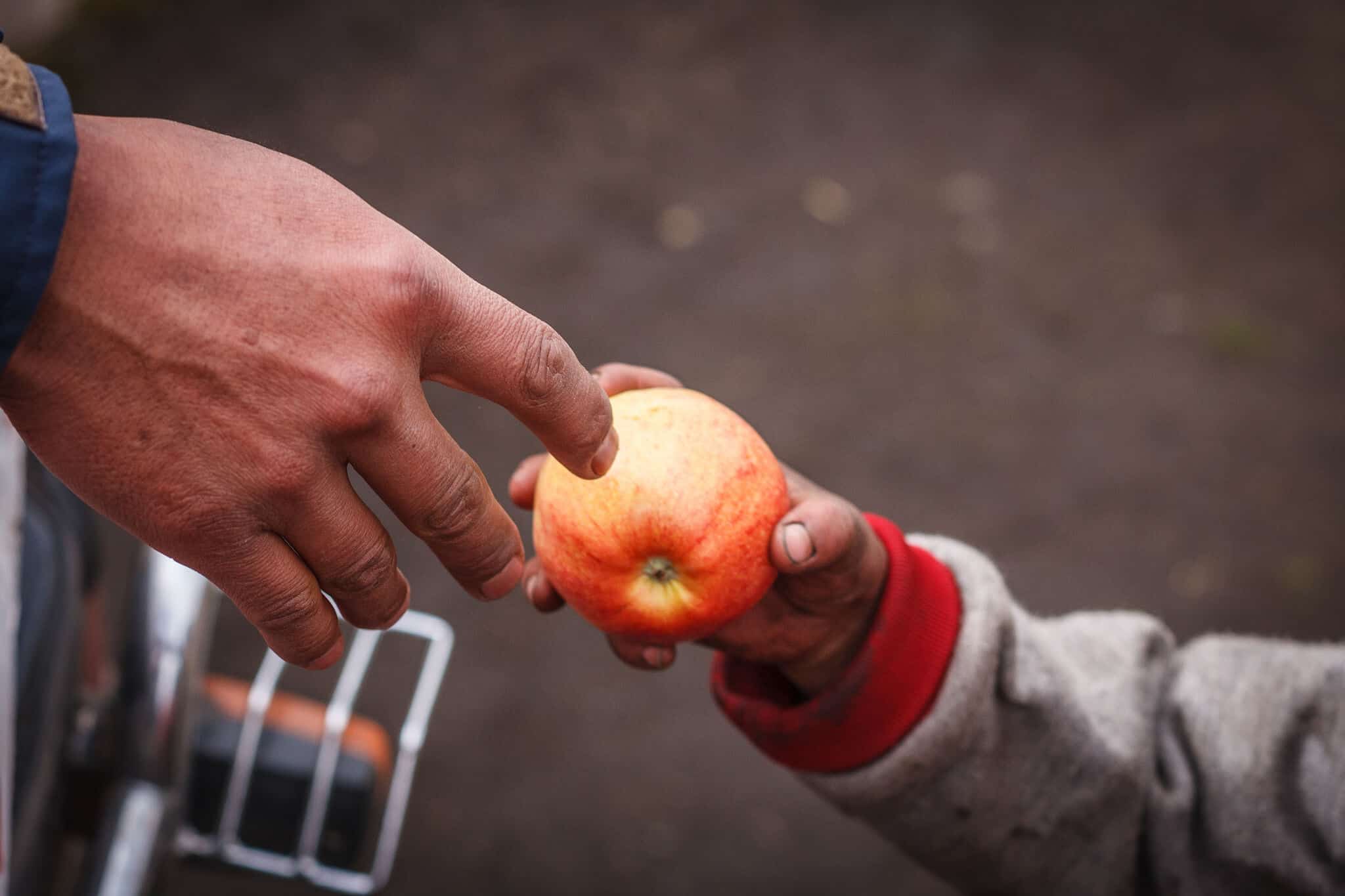
As a traveler to Peru, you might feel compelled to want to give back while on holiday by bringing gifts for the local people you encounter on your trip, especially those that live in rural communities. This is very noble and the drive to help is one we can definitely sympathize with. However, gifts can often create unintended consequences and spur corruption, jealousy or a begging mentality where none exited before.
It’s important to critically evaluate your intentions as a responsible traveler, and make sure that the gifts you choose to give are actually going to help. Here are some of our gift recommendations:
| Gifts to Avoid | Recommended Gifts |
|---|---|
|
|
Don’t forget that you are already giving a gift to rural families when you book a trek with Apus Peru! $20 of your trek price is donated to Threads of Peru, a local organization dedicated to providing economic opportunities to rural indigenous women and to preserving the Andean weaving tradition.
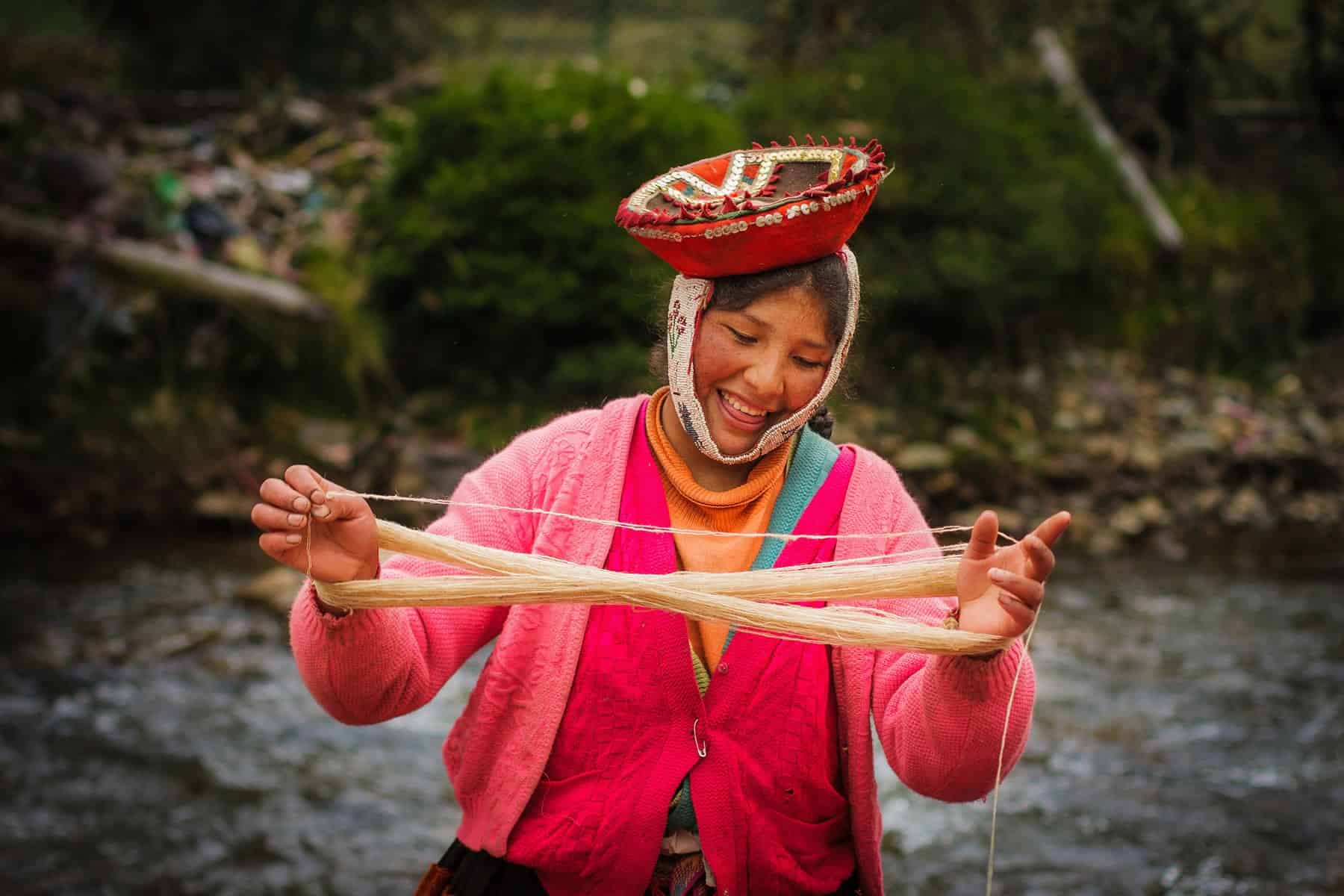
How to be a Responsible Traveler: Tip 10 – Be a Good Shopper
Many visitors to Peru come with the expectation of finding really good deals. While in the urban centres it is often okay to bargain a price down, don’t forget that the handful of soles you might be saving actually make a difference to the seller and their livelihood. In remote communities, haggling is not done and can actually seem insulting to the seller. If you are offered a price for something, it is expected you will pay that price.
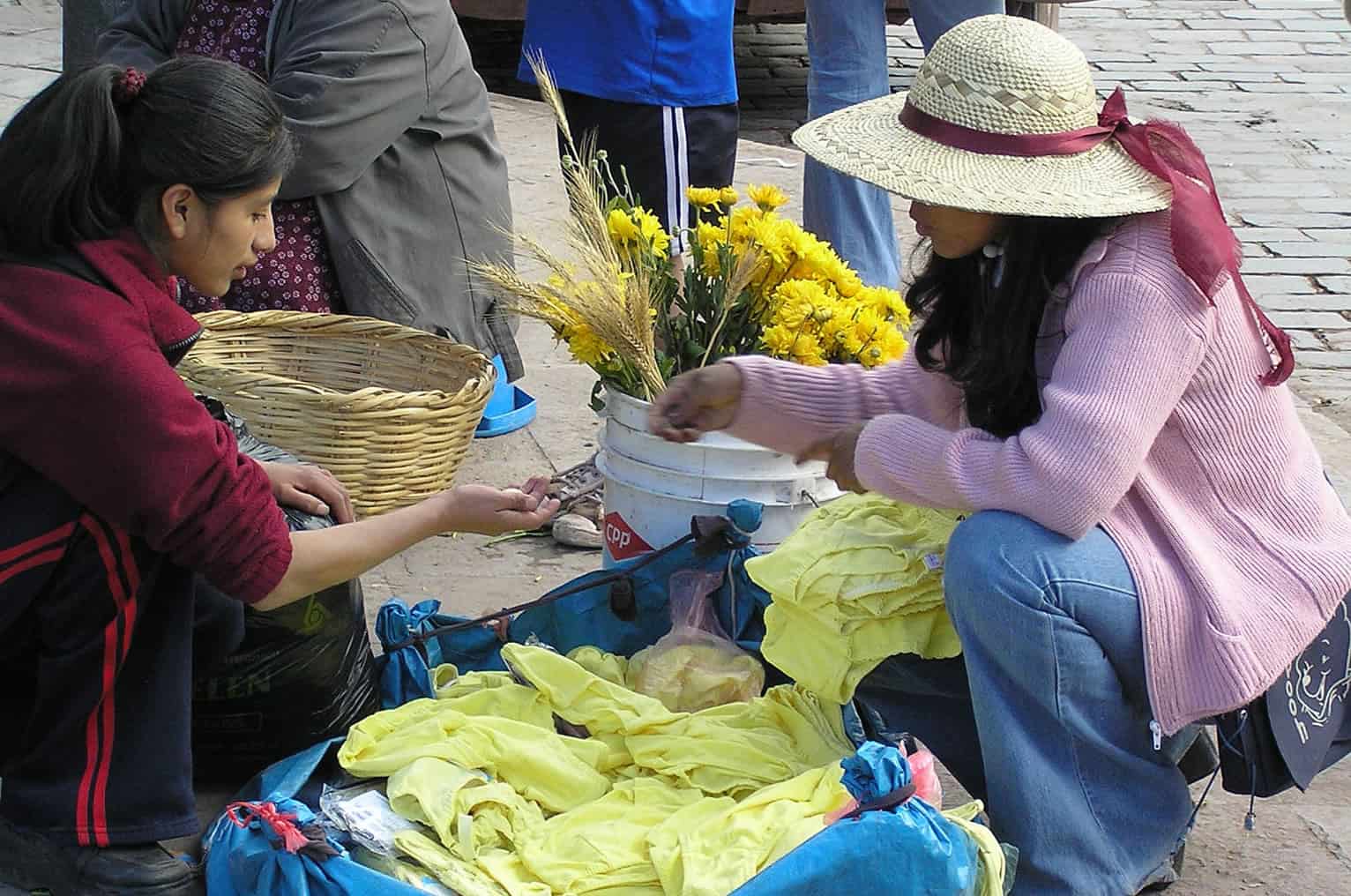
With these Top 10 Responsible Travel Tips, you, too, can be a responsible traveler and contribute to sustainable travel no matter where you visit!
>> Want to know more? Read our pages on Responsible Tourism, or sign up to our newsletter for a copy of our Traveler’s Code of Conduct!

